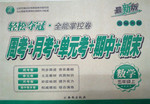题目内容
完形填空
The famous composer(作曲家),Albert Roussel,didn’t have a good start in this career. However,he achieved a great deal of success as a result of a .
Roussel's parents died when he was eight and he went to live with his .As a little boy,he fell in 1ove with music and himself about it by reading through the family collection that his mother kept. which there were a lot of related books.
Three years later.Roussel’s grandfather died,and his mother’s sister decided to him.Her husband was a kind man and for young Roussel’s music lessons.One summer vacation at a Belgian seaside added a second to his life—the sea.Then he studied to be a naval cadet(海军学员),but still took time to study .
In the French Navy,he and two friends found the time to a band,playing the works of Beethoven and other .Roussel also began composing.On Christmas day 1892,he had his first chance to as a composer,which turned out to be a success.
That success Roussel to write a wedding march(婚礼进行曲),and one of his navy friends ________ to show it to a famous conductor,Edouard Colonne.When Roussel’s friend with the manuscript(手稿),he reported that Colonne had advised Roussel to his naval career and devote his life to music.
Not long ,at the age of 25,Roussel decided to Edouard Colonne’s advice.He gave his heart and soul to his composing and a major force in the twentieth century’s French music.Because of Eduoard Colonne’s inspiring ,Roussel devoted his life to music,but Rousssel’s friend later admitted that he had made it up.He said he had never even shown Roussel’s manuscript to the famous conductor.
1.A.joke B.1ie C.guess D.hope
2.A.neighbor B.aunt C.teacher D.grandfather
3.A.taught B.chose C.improved D.asked
4.A.among B.between C.within D.before
5.A.miss B.catch C.raise D.1eave
6.A.paid B.applied C.1ooked D.waited
7.A.page B.1ove C.wish D.job
8.A.an B.English C.dance D.music
9.A.deal with B.make for C.set up D.take away
10.A.teachers B.professors C.composers D.singers
11.A.perform B.produce C.study D.publish
12.A.found B.encouraged C.forbade D.wanted
13.A.came B.brought C.refused D.offered
14.A.went B.returned C.1eft D.ran
15.A.give up B.keep to C.begin with D.focus on
16.A.however B.therefore C.afterwards D.then
17.A.repeat B.change C.correct D.follow
18.A.became B.replaced C.improved D.grasped
19.A.will B.request C.order D.advice
20.A.school B.navy C.music D.work
 轻松夺冠全能掌控卷系列答案
轻松夺冠全能掌控卷系列答案A schoolgirl saved her father's life by kicking him in the chest after he suffered a serious allergic (过敏的) reaction which stopped his heart.
Izzy, nine, restarted father Colm's heart by stamping (踩) on his chest after he fell down at home and stopped breathing.
Izzy's mother, Debbie, immediately called 999 but Izzy knew doctors would never arrive in time to save her father, so decided to use CPR.
However, she quickly discovered her arms weren't strong enough, so she stamped on her father's chest instead.
Debbie then took over with some more conventional chest compressions (按压) until the ambulance arrived.
Izzy, who has been given a bravery award by her school, said: "I just kicked him really hard.My mum taught me CPR but I knew I wasn't strong enough to use hands.I was quite scared.The doctor said I might as well be a doctor or a nurse.My mum said that Dad was going to hospital with a big footprint on his chest.”
"She's a little star," said Debbie, "I was really upset but Izzy just took over.I just can't believe what she did.I really think all children should be taught first aid.Izzy did CPR then the doctor turned up.Colm had to have more treatment on the way to the hospital and we've got to see an expert."
Truck driver Colm, 35, suffered a mystery allergic reaction on Saturday and was taken to hospital, but was sent home only for it to happen again the next day.The second attack was so serious that his airway swelled, preventing him from breathing, his blood pressure dropped suddenly, and his heart stopped for a moment.
He has now made a full recovery from his suffering.
1.From the passage, which of the sentences about Debbie is true?
A.She thought it useless to teach children first aid.
B.She thought if her daughter became a doctor, she would kick him harder.
C.She did nothing to help her husband.
D.She was proud of her daughter.
2.Izzy kicked her father in the chest ______ .
A.to express her helplessness
B.to practise CPR on him
C.to keep him awake
D.to restart his heart
3.What's the right order of the events?
①Izzy kicked Colm. ②Debbie called 999. ③Izzy learned CPR. ④Colm's heart stopped. |
A.3124
B.4231
C.3421
D.4312
4.What does Paragraph 8 mainly talk about?
A.What Colm suffered.
B.Colm's present condition.
C.What caused Colm's allergy.
D.Symptoms of Colm's allergic reaction.
5.Why does the author write the news?
A.To describe a serious accident.
B.To prove the importance of CPR.
C.To report a 9-year-old girl's brave act.
D.To call people's attention to allergic reaction.

